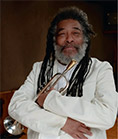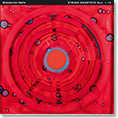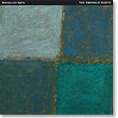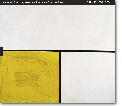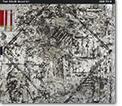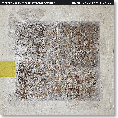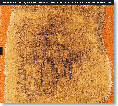THE MUSIC - ILLUSION OF A BALLAD

Ever since Ulf Krokfors, Tom Nekljudow and myself formed this trio in 2001, we have been talking about putting together a collection of standards - particularly ballads - in order to express our own approach to this material. Amongst ourselves, we have been referring to this project as our "beautiful album." Here, finally, is the result of our efforts. We hope that it fits the bill.
We would like to ask the listener not to approach this music with a preconceived notion of what a jazz ballad should sound like or how it should be structured. That is not what we set out to do. Rather, we sought to open these classic compositions both rhythmically and harmonically - making them simpler but also more complex - in order to be able to tell the stories that they represented to us at this particular time. We may not have stayed in the "box" that these compositions have come to represent as a basis for jazz improvisation but neither did we seek to do so.
In order to join in, you should consider opening the top button of your shirt and loosening your belt - both figuratively and literally speaking - and just listen to the stories.
Helsinki, January 8, 2006
Juhani Aaltonen
My Ship (music: Kurt Weill; lyrics: Ira Gershwin) was composed for the musical play "Lady In The Dark" in 1941. It has also become a part of the standard jazz repertoire both through numerous vocal versions and through the Miles Davis/Gil Evans collaboration on the song (Miles Ahead, Columbia) in 1957.
But Not For Me (music: George Gershwin; lyrics: Ira Gershwin) is one of the compositions that Juhani Aaltonen and Edward Vesala used more than 30 years ago when first developing their approach to freely improvised ballads. It was included on Aaltonen´s first recording as a leader (Etiquette, Love Records) in 1974 and has been a part of Aaltonen´s basic repertoire ever since. This classic torch song was originally composed for the musical "Girl Crazy" in 1930 and became one of the many hits produced by the musical, which also included "I Got Rhythm" and "Embraceable You."
Broken Shadows (Ornette Coleman) was first introduced by Ornette Coleman on his classic but overlooked live recording with Don Cherry, Dewey Redman, Charlie Haden and Ornette Denardo Coleman (Crisis, Impulse) in 1969. According to Aaltonen, both "Broken Shadows" and "Lonely Woman" are good examples of Ornette Coleman´s genius as a ballad composer.
Stella By Starlight (music: Victor Young; lyrics: Ned Washington) is another standard that Aaltonen and Vesala used when practicing and performing together early in their careers. As the song was known to all, it was an easy vehicle for playing together regardless of who happened to be around at any given time. Aaltonen has continued to perform the song with various groups since that time. "Stella By Starlight" was composed for the 1944 movie "The Uninvited" and became an instant classic both in popular music and as a vehicle for jazz improvisation.
You Don´t Know What Love Is (music: Don Raye; lyrics Gene DePaul) was composed by Don Raye in 1941, with lyrics by his frequent songwriting partner Gene DePaul. Although not one of the Raye-DePaul team´s biggest hits, it has become a favorite of jazz musicians. Aaltonen first came to know the song through John Coltrane´s interpretation of it (Ballads, Impulse).
Lonely Woman (Ornette Coleman) was first recorded by Ornette Coleman with his classic quartet (The Shape of Jazz To Come, Atlantic) in 1959 and may be his most frequently covered composition, at least momentarily, approaching the position of a popular standard. The many 1960s recordings of the composition included a version by the Finnish popular music and jazz singer Carola from 1966, but Juhani Aaltonen does not recall playing it around that time. As with "Broken Shadows," Aaltonen is attracted to "Lonely Woman" by the beauty of its melody and its deep melancholy.
Come Sunday (Duke Ellington) was originally a part of Ellington´s Black, Brown and Beige tone poem, composed for his Carnegie Hall debut in January 1943. The inclusion of this composition may be seen as a link to one of Aaltonen´s favorite ballad players, Johnny Hodges, who was featured as its soloist at that time.
Nature Boy (Eden Ahbez) was made immortal by Nat King Cole´s 1948 recording that was also very popular in Finland. Aaltonen remembers often hearing the song on the radio in the 1950s and becoming fond of it even before starting to play an instrument. Again, he is attracted to the song by its strong melody and underlying melancholy. "This composition gives you an incredible amount of freedom of interpretation. You can twist and turn it whichever way you wish and still feel comfortable," Aaltonen says. As a result, it has become a stable in the Juhani Aaltonen Trio´s repertoire and is frequently featured as an encore. A live version is included on the trio´s first recording (Mother Tongue, TUM CD 003).
Lush Life (Billy Strayhorn) is one of Billy Strayhorn´s early compositions (completed in 1936) and was originally titled "Life Is Lonely." According to Aaltonen, the composition reaches a Bach-like genius in its combination of a beautiful melody and surprising harmonic turns. "To me, Lush Life is the ultimate ballad that sets the standard on how a ballad should be put together. It approaches a perfection that is so rarely reached." Aaltonen added "Lush Life" to his basic repertoire when leading a quartet in the 1980s (with pianist Olli Ahvenlahti, bassist Heikki Virtanen and drummer Reino Laine).

